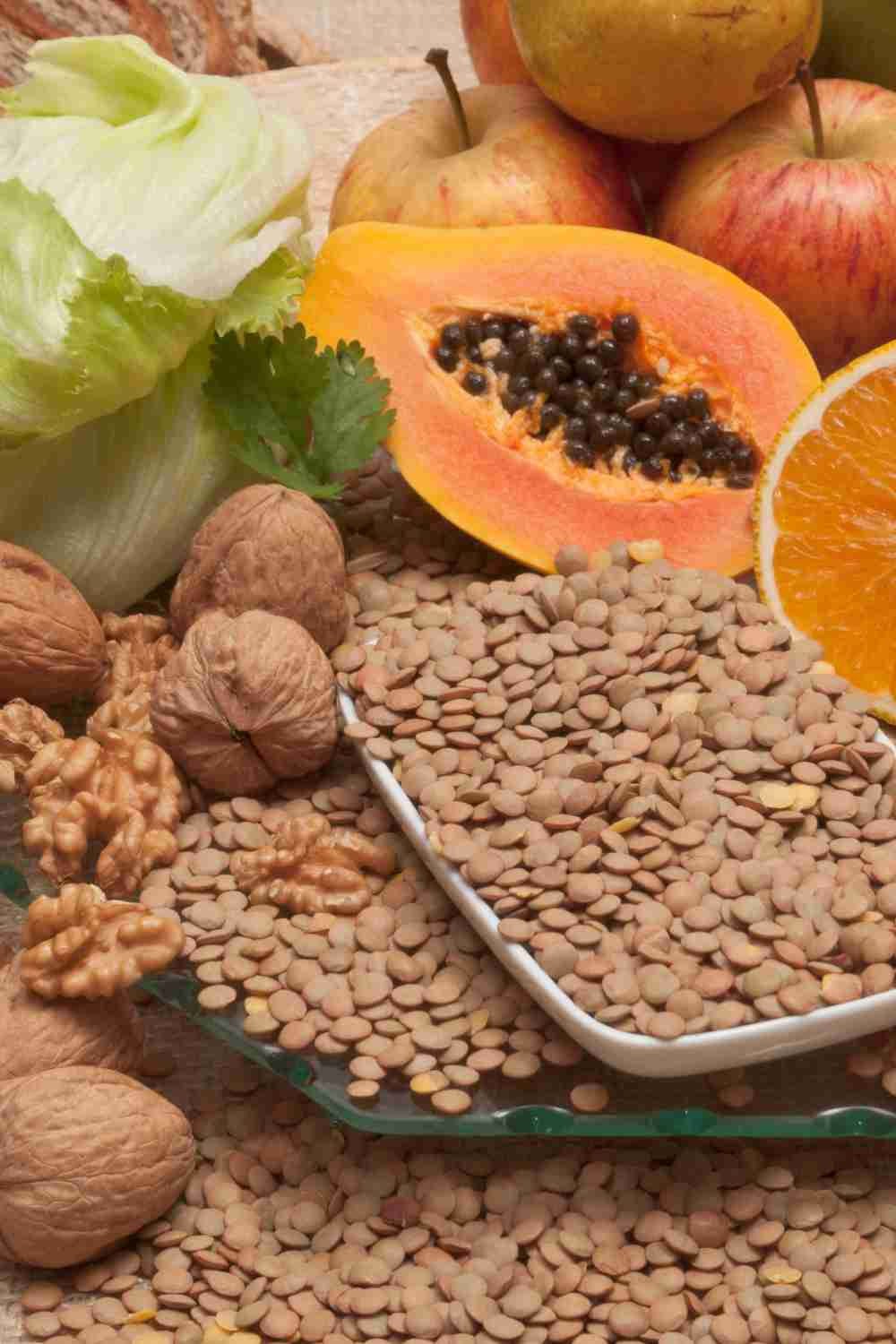When it comes to functional foods, chicory root often flies under the radar. But for those looking to improve overall wellbeing, chicory root is worth exploring. Packed with inulin, a powerful soluble fibre, chicory root is a game-changer for anyone striving for a balanced diet and wellbeing.
Chicory (Cichorium intybus) is a perennial plant grown worldwide. Known for its vibrant blue flowers, its root has been used for centuries for both culinary and medicinal purposes. The magic of chicory root lies in its high concentration of inulin, a natural dietary fibre that offers a wealth of health benefits.
Inulin is a type of fructan, a carbohydrate composed of chains of fructose molecules. Unlike other types of fibre, inulin resists digestion in the stomach and small intestine, reaching the colon intact. Here, it acts as food for beneficial gut bacteria, supporting the microbiome.

Why Is Fibre So Important?
Fibre is essential for good health, playing a crucial role in digestion and maintaining bowel regularity. It promotes satiety, aiding in weight management, and slows the absorption of sugar and fats, helping regulate blood sugar levels 1,2 .
Inulin has unique benefits. As a soluble fibre, it selectively feeds beneficial bacteria like Bifidobacteria and Lactobacilli in the gut. A healthy gut microbiome is increasingly recognized as a cornerstone of overall health, influencing everything from immune function to mood 3 .

The Science Behind Chicory Root and Inulin
Research highlights the value of chicory-derived inulin in promoting gut health. Studies have shown that inulin can:
- Improve gut microbiota composition: Inulin fosters the growth of good bacteria, which play a role in breaking down food, producing essential nutrients, and protecting against harmful microbes 4 .
- Support bowel regularity: Inulin can soften stools and help relieve constipation 5,6 .
- Boost calcium absorption: Some studies suggest that inulin enhances mineral absorption, supporting bone health 7 .

Fibre Guidelines: How Much Do We Need?
In the UK, adults are advised to consume 30 grams of fibre daily, but the average intake is only 20 grams. Similarly, in Ireland, the recommended intake for adults is 24-35 grams per day, yet 80% of people do not meet this target.
The most recent National Irish Adult Survey reports that the average fibre intake among Irish adults aged 19-64 and those aged 65 and over is just 18 grams—significantly below the recommended levels.
To bridge this gap, adding fibre-rich foods, especially those containing chicory inulin, can be a practical and effective way to meet daily needs.
Food Sources of Inulin
Chicory root isn’t the only source of inulin, but it is one of the richest. Other foods that naturally contain inulin include:
- Garlic
- Onions
- Leeks
- Asparagus
- Artichokes
- Bananas

Not All Chicory Is Created Equal
While chicory is a natural source of inulin, the quality and concentration of inulin can vary depending on how it is processed. Our chicory root extract is derived using a gentle, natural extraction process that preserves its purity and potency. This results in a product that contains 90% inulin, offering a highly concentrated source of this beneficial fibre.
This high inulin content ensures maximum benefits, making it easier to incorporate into everyday diets. It’s an ideal addition for anyone looking to improve their fibre intake with a natural, plant-based ingredient.
Revive Active: Your Partner in Better Health
At Revive Active, we recognise the transformative power of high-quality, natural ingredients. That’s why we harness the benefits of chicory root as a rich source of inulin.
Using a natural extraction process, we ensure our chicory inulin is 90% concentrated—delivering exceptional purity and potency. This commitment to quality allows us to maximize the health benefits of inulin, from fostering a balanced microbiome to promoting digestive regularity.
Our formulations are designed with convenience and efficacy in mind, making it easier than ever for you to meet your daily fibre needs and take proactive steps toward prioritising your health.
*The advice in this article is for information only and should not replace medical care. As with any nutritional supplement please consult your qualified healthcare professional before use, especially if pregnant, breastfeeding, if you have a known medical condition or are taking medication. Food supplements must not be used as a substitute for a varied and balanced diet and a healthy lifestyle.
References:
- 1. Lattimer JM, Haub MD. Effects of Dietary Fiber and Its Components on Metabolic Health. Nutrients. 2010 Dec 15;2(12):1266–89. https://www.ncbi.nlm.nih.gov/pmc/articles/PMC3257631/
- 2. Ioniță-Mîndrican CB, Ziani K, Mititelu M, Oprea E, Neacșu SM, Moroșan E, et al. Therapeutic Benefits and Dietary Restrictions of Fiber Intake: A State of the Art Review. Nutrients. 2022 Jun 26;14(13):2641 https://www.ncbi.nlm.nih.gov/pmc/articles/PMC9268622/
- 3. Hughes RL, Alvarado DA, Swanson KS, Holscher HD. The Prebiotic Potential of Inulin-Type Fructans: A Systematic Review. Advances in Nutrition. 2021 Oct 27;13(2). https://pmc.ncbi.nlm.nih.gov/articles/PMC8970830/
- 4. You S, Ma Y, Yan B, Pei W, Wu Q, Ding C, et al. The promotion mechanism of prebiotics for probiotics: A review. Frontiers in Nutrition. 2022 Oct 5;9. https://pmc.ncbi.nlm.nih.gov/articles/PMC9581195/
- 5. Bărboi OB, Ciortescu I, Chirilă I, Anton C, Drug V. Effect of inulin in the treatment of irritable bowel syndrome with constipation (Review). Experimental and Therapeutic Medicine. 2020 Oct 13;20(6):1–1. https://pmc.ncbi.nlm.nih.gov/articles/PMC7579772/
- 6. Lynch E, Mulligan S, Doyle SL. An exploration of fibre intake and bowel function in a sample of adults at an Irish university campus. Irish Journal of Medical Science. 2024 Aug 01. https://link.springer.com/article/10.1007/s11845-024-03764-9
- 7. Bakirhan H, Karabudak E. Effects of inulin on calcium metabolism and bone health. International Journal for Vitamin and Nutrition Research. 2021 Feb 22;1–12. https://pubmed.ncbi.nlm.nih.gov/33611985/

